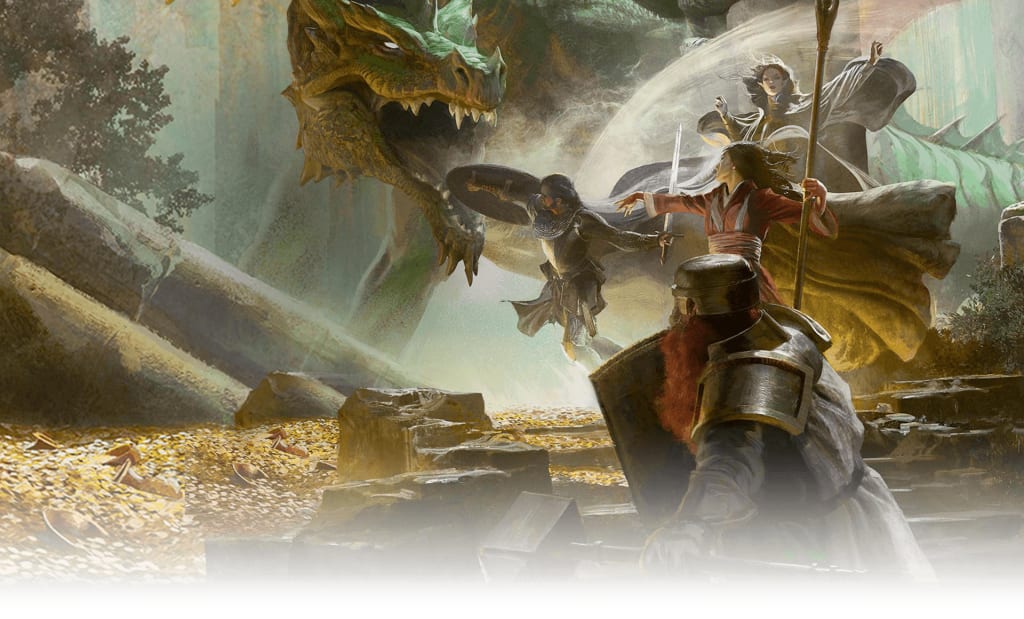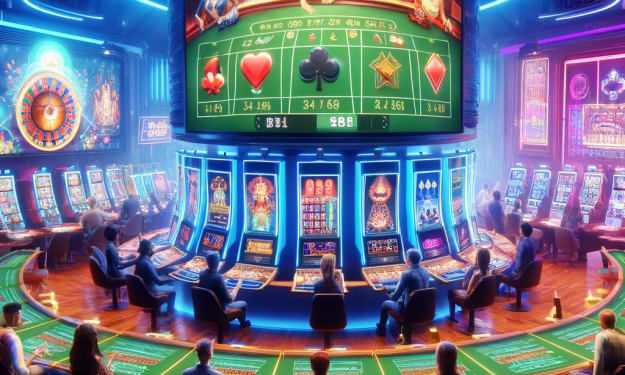
You have probably heard of Dungeons and Dragons by now, and it wouldn't be bold to say that it's had a bit of a renascence. With a plethora of shows like Critical Role, High Rollers, and Acquisitions Incorporated, the spread of D&D has hit an all time high, but what is D&D and how can you get into it?
What is Dungeons and Dragons?
D&D is a cooperative storytelling table top role playing game. Yes, I'm aware that it's a bit of a mouthful. So, what does all that mean? Well, it means that a group of people get together to create characters to play in a fantasy world, one of them being the Games Master (GM) or also known as the Dungeon Master (DM). The GM is the narrator of the story. They tell the players what they see in the world, what happens because of dice rolls and other things, as well as playing all non-player characters (NPCs). There is no winning D&D in the traditional sense that you can win a game. You all work together to create a story and adventure in a fantasy world. I will go into more detail about being a GM and world building in another article.
So, what do you need to get started?

First, if you know anyone who is running a game, join them; if not, local game stores generally do weekly sessions that you can hop into. D&D is one of those games that is easier to learn by playing, rather than reading the books cover to cover and trying to figure out the rules. Having other players around can if always beneficial as they can help answer any questions that you have as you're playing. As for characters you can find and use pregenerated characters - otherwise known as pregens - at dnd.wizards.com. While these characters are quite generic, everything has been done for you, and all you need to do is make decision and roll dice. If that isn't a possibility, then I would recommend the starter set.
The starter set is an introductory campaign by Wizards of the Coast that is designed for beginners. It has a set of dice, blanks character sheets and pregens, as well as the campaign guide for the GM and a set of the basic rules that you'll need. This rule set is far more condensed compared to the Players Handbook (the core book for D&D), and far easier to understand.
Alternatively, you can create your own character by generating your stats. Every character has six main stats: Strength, Dexterity, Constitution, Intelligence, Wisdom and Charisma. The numbers in each of these stats will determine what you add when you roll the dice. There are three methods to get these numbers.
Standard Array:
This is the easiest to work from. You have the numbers 15, 14, 13, 12, 10 and 8. You place these into the stats you think they should go in. The great thing about D&D is that there is no right or wrong way to do things. Some people like to optimise their builds and make the strongest character they can; others like to mix around the stats for more fun roleplaying.
Point Buy:
Point buy is a little more complicated than standard array. Each character starts with 27 points to spend. The numbers you can choose from start at 8, which equals 0 points spent, all the way up to 15, which costs 9 points.
Rolling:
This is more of a common method of getting your main stats. You roll 4d6 (a d6 is a standard six sided dice, like what you have in games like Monopoly) and drop the lowest number, adding the rest together. So, let’s say you roll your 4d6 and get: 3, 4, 4, 6. You would drop the 3 and add the rest, leaving you with 14 as one of your stats.
What is the most important thing to know about D&D?
If there is one thing that you need to remember about D&D, it's this: have fun. This is a game where you play characters in a fantasy world going on adventures with your friends. So, grab some friends, a character sheet, a set of dice, and go make magic.
About the Creator
Luke Partridge
A writer and published author with a love for all things nerdy.






Comments
There are no comments for this story
Be the first to respond and start the conversation.